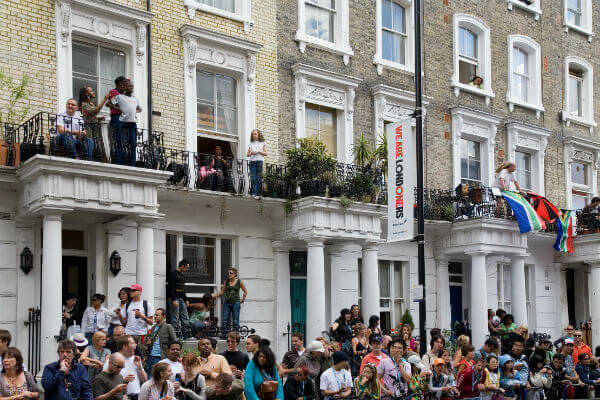Jamelle Bouie writes: In a nation shaped and defined by a rigid racial hierarchy, [Barack Obama’] election was very much a radical event, in which a man from one of the nation’s lowest castes ascended to the summit of its political landscape. And he did so with heavy support from minorities: Asian Americans and Latinos were an important part of Obama’s coalition, and black Americans turned out at their highest numbers ever in 2008.
For liberal observers, this heralded a new, rising electorate, and — in theory — a durable majority. “The future in American politics belongs to the party that can win a more racially diverse, better educated, more metropolitan electorate,” wrote Harold Meyerson in the Washington Post after the 2008 election. “It belongs to Barack Obama’s Democrats.”
For millions of white Americans who weren’t attuned to growing diversity and cosmopolitanism, however, Obama was a shock, a figure who appeared out of nowhere to dominate the country’s political life. And with talk of an “emerging Democratic majority,” he presaged a time when their votes—which had elected George W. Bush, George H.W. Bush, and Ronald Reagan—would no longer matter. More than simply “change,” Obama’s election felt like an inversion. When coupled with the broad decline in incomes and living standards caused by the Great Recession, it seemed to signal the end of a hierarchy that had always placed white Americans at the top, delivering status even when it couldn’t give material benefits.
In a 2011 paper, Robin DiAngelo — a professor of multicultural education at Westfield State University — described a phenomenon she called “white fragility.” “White Fragility is a state in which even a minimum amount of racial stress becomes intolerable, triggering a range of defensive moves,” she writes. “These moves include the outward display of emotions such as anger, fear, and guilt, and behaviors such as argumentation, silence, and leaving the stress-inducing situation. These behaviors, in turn, function to reinstate white racial equilibrium.”
DiAngelo was describing private behavior in the context of workplace diversity training, but her diagnosis holds insight for politics. You can read the rise of Obama and the projected future of a majority nonwhite America as a racial stress that produced a reaction from a number of white Americans — and forced them into a defensive crouch. You can see the maneuvering DiAngelo describes in the persistent belief that Obama is a Muslim — as recently as last fall, 29 percent of Americans held this view, against all evidence. It is a way to mark Obama as “other” in a society where explicit anti-black prejudice is publicly unacceptable. Consistent with this racialized fear and anxiety is the degree to which white Americans now see “reverse discrimination” as a serious problem in national life. For its American Values Survey, the Public Religion Research Institute asks respondents whether “discrimination against whites is a significant problem.” In last year’s survey, 43 percent of Americans — including 60 percent of working-class whites — said discrimination against whites had become as big a problem as discrimination against blacks and other minorities.
The anxieties DiAngelo describes, and the fears cataloged by the American Values Survey, have real political impact. In a 2014 study, political scientists Maureen Craig and Jennifer Richeson tried to measure “perceived status threat” from a shift in racial demographics, surveying how people responded when informed that California is now home to more blacks, Hispanics, and Asians than non-Hispanic whites. In other words, how do white Americans react to unrelated political questions when exposed to news of a “majority-minority” future? The results were clear. “Making the majority-minority shift in California salient led politically unaffiliated white Americans to lean more toward the Republican Party,” wrote Craig and Richeson. Likewise, “making the changing national racial demographics salient led white Americans (regardless of political party affiliation) to endorse both race-related and relatively race-neutral conservative policy positions more strongly.”
The Obama era didn’t herald a post-racial America as much as it did a racialized one, where millions of whites were hyperaware of and newly anxious about their racial status. [Continue reading…]

